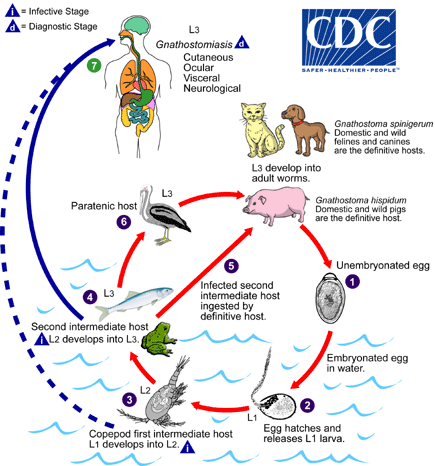An Australian teen was recently diagnosed with a parasitic infection that she contracted some six years ago, according to a Yahoo Australia news report today.

According to the report, Carly Goff contracted the then unknown parasite after eating undercooked fish while on vacation in Fiji. The parasite was recently identified as the parasitic nematode, Gnathostoma.
According to the Centers for Disease Control and Prevention (CDC):
Human gnathostomiasis is caused by several species of parasitic worms (nematodes) in the genus Gnathostoma. The disease is found and is most commonly diagnosed in Southeast Asia, though it has also been found elsewhere in Asia, in South and Central America, and in some areas of Africa. People become infected primarily by eating undercooked or raw freshwater fish, eels, frogs, birds, and reptiles. The most common manifestations of the infection in humans are migratory swellings under the skin and increased levels of eosinophils in the blood. Rarely, the parasite can enter other tissues such as the liver, and the eye, resulting in vision loss or blindness, and the nerves, spinal cord, or brain, resulting in nerve pain, paralysis, coma and death.
Gnathostomiasis is treated with antiparasitic medications. In the two months since the diagnosis, Carly’s been treated with worm tablets which starve the parasite, and she is finally on the road to good health, the report notes.
Related:
- Lymphatic filariasis in Nigeria: The battle against the disfiguring parasitic disease
- Parasites 101: Hookworms
- Parasites 101: Pinworms
- Parasites 101: Entamoeba histolytica
- Travel health and medicine issues
- Diphyllobothrium: The largest known tapeworms that can infect people
- Parasites 101: Swimmer’s itch


parasitic worms is unexpected